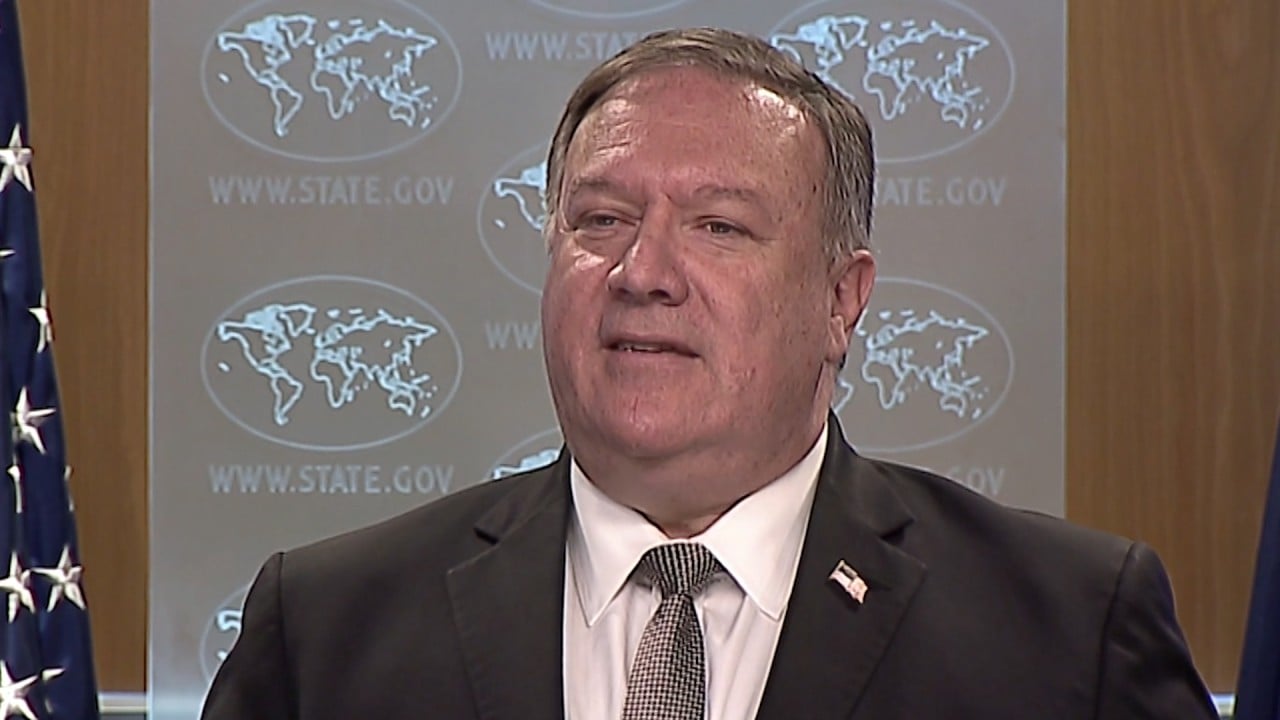
US could sanction Chinese social media apps over personal data concerns, Mike Pompeo says
- India has banned TikTok, Australia is considering similar action and the US has previously sanctioned Chinese-owned gay dating app Grindr
- Using TikTok puts your private information in the hands of China’s Communist Party, according to Pompeo
“We’re taking that very seriously,” Pompeo said in the interview. “We’re looking at it. I can assure you the United States will get this one right too. I don’t want to get in front of [President Donald Trump] but it’s something we’re looking at.”

01:04
Pompeo says US considering ban on TikTok and other Chinese apps, praises Google, Facebook, Twitter
It was not clear what action the US intended to take against TikTok. Bans such as those in place in India and China against foreign internet services are rare in the US.
“If the Trump administration would like to do that, there might need to be the enactment of a new law,” Jyh-an Lee, a professor who specialises in digital laws at Chinese University in Hong Kong, said.
Lee said Pompeo’s allegation was more about personal user data than national security, “but of course you can always argue that once the Chinese government has a much more comprehensive understanding of young people or app users in the US, all that accumulated data might create very important information.”

04:54
Huawei export ban ‘won’t make US safer’
Jim Fitzsimmons, from global risks consultancy Control Risks, said digital sovereignty was becoming an increasingly important issue worldwide, even in countries such as the US where traditionally there has not been heavy regulation of technology or information flow.
“This could come as a big surprise, especially for US technology companies that are used to a very light-touch regulatory environment,” he said. “But we see this trend globally.”
Fitzsimmons said a comparable US case involved gay dating app Grindr – owned by Chinese company Beijing Kunlun Tech.
Hong Kong national security law official English version
ByteDance was the first internet company to withdraw from Hong Kong, following announcements from Facebook, WhatsApp, Twitter and Telegram that they would pause processing law enforcement requests for user data in the city.
One of the world’s most popular social media apps, TikTok was the Apple app store’s most downloaded app in the first quarter of 2020 and boasts about 800 million monthly active users, according to marketing research firm App Annie.

